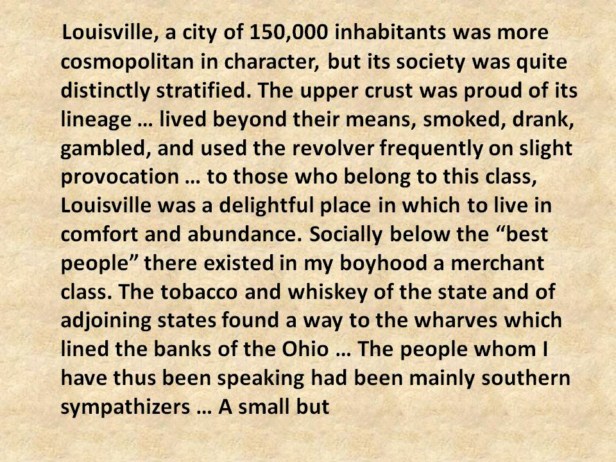 |
growing group in Louisville was made up of intellectuals like the Brandeis
family and their kin, who had left Germany in 1848, and of those who,
forgetting the Civil War, wished to participate in literary and scholarly
activities on their own merits. Finally, there were poor whites and Negroes,
whose plight disturbed no one. They were indeed our playmates. Playgrounds
were non-existent, but there was little traffic to interfere with baseball
played in the streets by teams indiscriminately white and black. Of the
social and educational problems of the Negro I did not become aware until,
[when] more than 40 years of age, I was introduced to this aspect of
southern life and its problems by Dr. Wallace Buttrick …
|
